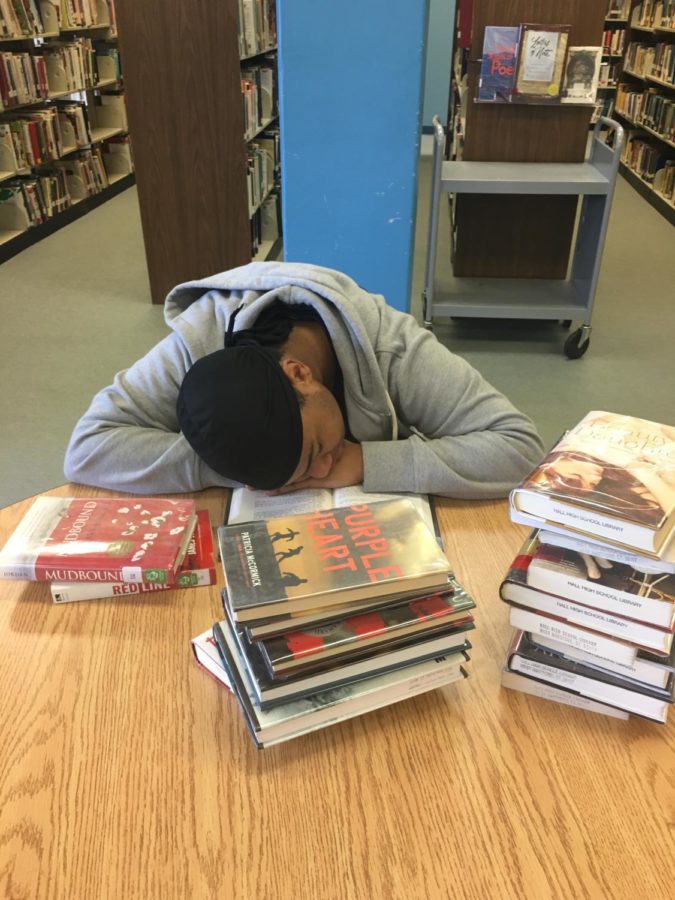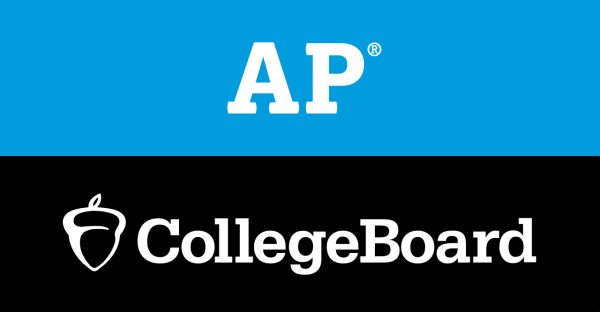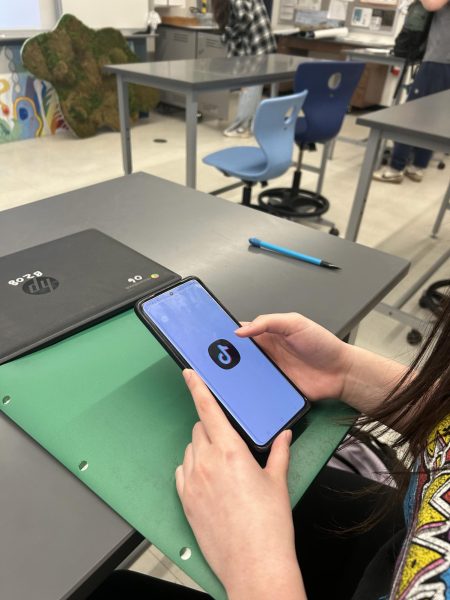Should schools have later start times?
Should schools have later start times? That is a question that has been asked more and more and has been causing controversy as there is valid reasoning to support both sides. Schools across the nation have been pushing their start times back and now the West Hartford Public Schools system is thinking about making the change.
Currently in West Hartford, the high schools start at 7:30 a.m and end at 2:15 p.m.. For high school students, this means they have to wake up before 7:00 a.m.. Some high schoolers even wake up earlier than 6:00 a.m. in order to have enough time to go through their morning routine before school starts. In a recent survey of Hall and Conard High School students done by Hall senior, Jason Buckman, he found that the average time students wake up on a school morning is 6:16 a.m.
A common theme among students is that many of them feel like they don’t wake up until some time during the school day; Jason’s survey revealed that nearly 50% of students feel they aren’t fully awake until 3rd or 4th period. Many students feel they are too tired to pay full attention to their early morning classes, “It always takes me a few hours from when I wake up to actually feel awake and feel engaged in my classes”, says Patrick Daly, Hall High School senior.
There are many pros and cons to later start times that are being considered into West Hartford’s decision. Some of the pros that support a later start time include: improved attendance rates, general health benefits, greater biologically beneficial sleep, and the fact that students will be able to focus more in all of their classes allowing them to potentially earn better grades.
It has been scientifically proven that teenagers benefit more by going to sleep later at night and waking up later in the morning rather than going to sleep and waking up earlier. The reason behind this has to do with teenagers’ circadian rhythm, which Hall psychology teacher, Mr. Marselle, explained, “[Teenagers’] circadian rhythm is shifted towards the end of the day into the night. Your body should not be forced into doing something like going to school well before your circadian rhythm dictates [your body] in a way that is optimal not just for learning but optimal for health; your resistance to disease and your resistance to colds and the flu. Your immune system is compromised”.
“Teenagers easily stay up 11:00/12:00 at night but the flip side is they don’t wake up until 9:30/10:00 in the morning and the only problem with that is that across America you’ve already had three classes by then”, added Mr. Marselle. In addition to the later bedtime and wake up time, the amount of sleep teenagers receive must also be ideal for teenagers to feel well rested in the morning. The amount of sleep teenagers receive is very essential and is quite an issue for many teenagers to consistently acquire. Many teenagers simply do not feel tired enough to go to sleep earlier at night yet still are forced to wake up early in the morning. According to the American Academy of Pediatrics (AAP), teenagers need at least 8-10 hours of sleep per night.
On the other side of the argument, there are many factors in support of the early start time. The main cons with a later start time include: increased early dismissals, time/scheduling issues with athletics such as practices and games (as well as time issues for other after-school activities like clubs and other groups), difficulties with parents’ schedules, and less time for student’s personal life needs such as working, tutoring, and social interactions.
In a recent article by the Hartford Courant, West Hartford’s Athletic Director, Jason Siegal, noted that Hall and Conard students were dismissed early from school for athletic events a total of 23 times in the 2016-2017 school year. Later start times would only lead to more early dismissals. Author of the Hartford Courant, Mikaela Porter, summarized Siegal’s point by writing, “If the 2:15 p.m. dismissal moved to 2:45 p.m., Siegal said that number would increase to between 200 and 220 times, and a 3:15 p.m. dismissal time would bump that number to between 250 and 265 times”.
Student athletes will be missing classes more often due to athletic related early dismissals but the coaches who are also teachers will have to miss more of their own classes as well. This means it will also be affecting the students of those coaches due to an increased amount of absences during their 8th period classes. It doesn’t just affect the athletes, it affects many other students.
Another problem with the early dismissals is that the student athletes would be missing the same 8th period class causing a lack of apprehension of that class. The issues in the athletic program seem to be one of the biggest factors for opposing the later start times.
For if a later start time will be implemented for West Hartford Public Schools, we simply do not know yet. Mikaela Porter wrote in her article, “Tom Moore said, ideally, the committee would provide a final presentation in May and that a school board vote would take place during the last meeting in June on whether to implement later school start times for the 2019-2020 year”. So whether West Hartford chooses to establish a later start time or not, we should know the answer by May.






